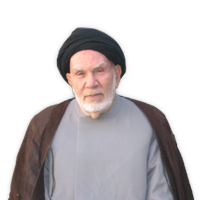Evaluation of scientific views of Friedrich Nietzsche (2)
In the Name of God
Evaluation of scientific views of Friedrich Nietzsche
What we present you is the second part of the research-based subjects under interpretation booklets of holy Surah Hud which is the result of teachings of divine philosopher, Ostad Seyyed Ali Mousavi about the life and scientific methods of Friedrich Nietzsche.
One of the views which Nietzsche presented was against the poor which we have decided to explain in this article. All of us have heard several times that it is said if you find a weak human, take his hand and lift him up. However, we want to know what Nietzsche’s view is in this regard.
It should be noted that Nietzsche became a follower of the Sophists. Sophists believed wherever force is, power exists too and Nietzsche exactly grew up to be a follower of this school. Therefore, Nietzsche’s school is not based on intellect and love, but it is merely based on power. He believed whoever says that honesty, integrity, trustworthiness and benevolence are good, is misunderstood; the only main thing in this material word is power. This means that a person who wants to always be calm should not be weak. Otherwise, he will be stamped upon and deprived of his share. Therefore, Nietzsche’s school is based on power. He believed that all human efforts in their lives are for achieving power and force. Believing in the principal of power caused him to present this view that a weak person should be immediately crushed. If you see a weak person, kick him strongly for him to fall more into the hole. Why should a person grow to be weak and not strong?
Ostad Mousavi says: “Is it not true that God has given all humans magnificence, glory, and illumination? Therefore, why should humans become poor and puny?”
Regardless of the realm of philosophy, what is the position of the subject of “power” according to the holy Quran and the bases of Ahl al-bayt?
The logic of Islam and power
It should be known that power is a hidden force which accompanies humans throughout all stages of their lives. Islam and the logic of Quran have introduced the subject of “power” very well.
God Almighty says in verse twelve of the holy surah Maryam, “Yā Yaĥyá Khudhi Al-Kitāba Biqūwatin ۖ Wa 'ĀtaynāhuAl-Ĥukma Şabīyāan”, which means that O Yahya! If you want to take hold of the Book, take it with your power. If we generalize this verse to all people, it means O farmer! If you want to farm, farm strongly and do not be indifferent. If you want to visit your friend, organize all your affairs. If you want to walk, don not walk fast. Be elegant in the power of walking. O student! If you want to study, study with strength. Do not be feeble; do not make yourself weak; grow yourself up as a master. If you want to speak, speak firmly. Your words should be like a firm nail which is hammered into the wall of the ears, eyes, and thought of the audience.
Another example: Almighty God in the fourth Ayah of the holy Surah Aş-Şaf says, “'Inna Allāha Yuĥibbu Al-Ladhīna Yuqātilūna Fī Sabīlihi Şaffāan Ka'annahum Bunyānun Marşūşun”, which means that Almighty God says that we like that those who fight in the cause of God are as solid cemented structures which no power can reach them.
The word “Bunyānun Marşūşun” shows utmost power. Also in the logic of praying, there is an invocation from the holy prophet in which he says, “O Allah, I seek refuge in You from jealousy, envy and from cowards and weak people.” (Jamiu al-saghir, vol. 1, p.58). This means that even in an invocation it is said that people should not be weak in praying.
Ali (AS) says, “A true believer has a willpower that is as hard as granite although he is humbler than a servant.” (Ghorarul Hikam wa Dorarul Kalam, p. 118)
Imam Sadiq (AS) says in this regard, “A true believer’s soul and body are stronger than iron.” (The book Al-Kāfī (The Sufficient Book), vol. 5, p. 63)
Mu’min (a true believer) does not abandon his beliefs by a word nor is he misguided to other beliefs. When a Mu’min reaches the highest peak of faith, he will be stronger than a mountain. When some people give up their principals, they are not true believers in those principals, because if they were true believers, they would not waver. Also, a Mu’min should always be dear and should not be humiliated.
Therefore, the power which has been mentioned in the bases of Islam is in contrast with Nietzsche’s view.
We agree that weakness is a sign of abjection, but we do not agree with the rest of Nietzsche’s idea which says that if a weak person falls in a hole, kick his other foot and let him be destroyed, because we should help a weak person based on the emotional aspect.
However, we should find out what Nietzsche meant by a weak person. Does weakness include poor or penurious people? If yes, is this idea not in contrast with the fifth Ayah of the holy Surah Al-Qaşaş in which God says, “Wa Nurīdu 'An Namunna `Alá Al-Ladhīna Astuđ`ifū FīAl-'Arđi Wa Naj`alahum 'A'immatan Wa Naj`alahumuAl-Wārithīna”, which means, “We wished to be Gracious to those who were being depressed in the land, to make them leaders (in Faith) and make them heirs”?
In the next article we will explain this further.




Comments
0